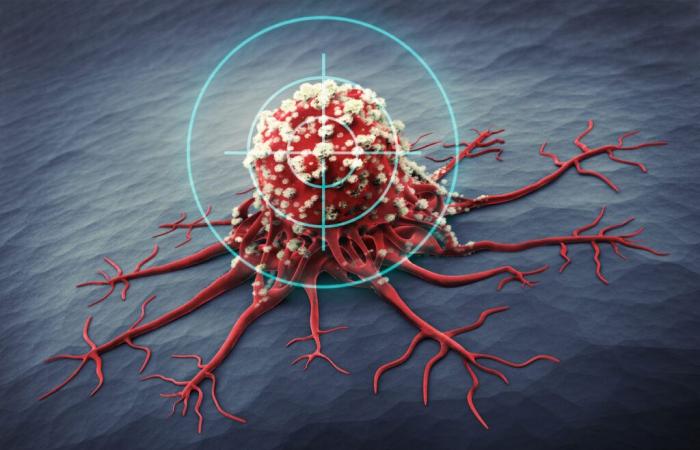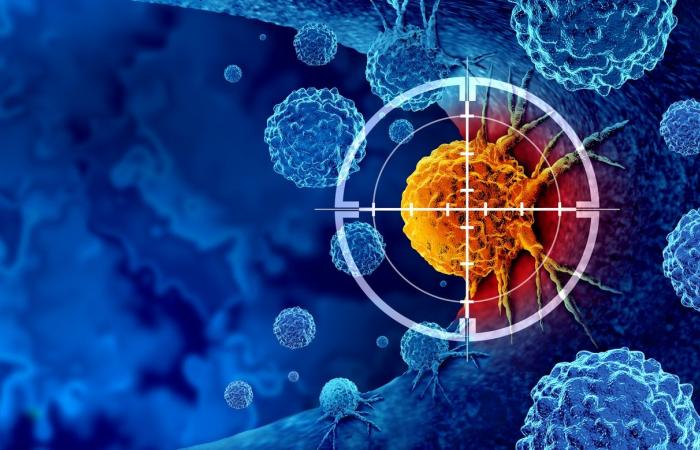Cancer treatments are improved through research. However, despite all the efforts of doctors and scientists, certain malignant tumors prove particularly resistant and the prognosis for patients can then leave little room for optimism. However, a happy discovery could change that. For the first time, researchers at Tel Aviv University say they have identified a protein that prevents the immune system from attacking tumors. They were then able to work on modifying its activity to instead stimulate the immune system in the fight against cancer cells. Although in its early stages, this advance could lead to new cancer treatments, including for types resistant to immunotherapy.
An unexpected discovery about cancer
According to Professor Carmit Levy, who co-authored the study with Professor Yaron Carmi and doctoral student Avishai Maliah, all of Tel Aviv University, and aided by other researchers in Israel and Massachusetts, this discovery is produced by chance.
The team started with a simple observation. In a healthy immune system, the body recognizes the presence of a virus and works effectively to counter it. However, with an autoimmune skin disease such as psoriasis, the immune system will see skin cells as harmful and trigger a response against them. Doctors then use phototherapy (or ultraviolet light therapy) to help treat psoriasis by slowing down immunity so that it stops racing. Levy explained that she and Maliah then established a link between one system, phototherapy, and another, cancer. The Sun is certainly very different from Cancer, but both have a distinct impact on immune function.
As Levy explains, his “ laboratory studies both cancer and the effects of ultraviolet (UV) rays from the Sun on our skin and body, two things known to suppress the immune system. […] While in most cases we, cancer researchers around the world, focus on the tumor and look for mechanisms by which cancer inhibits the immune system, here we proposed a different approach: examine how UV exposure suppresses the immune system et apply our findings to cancer. » It was while continuing this research that the researchers made a notable discovery.
A protein would be the key to everything
During their research in immunology, scientists have observed the effect of UV exposure on various proteins. The team then discovered a significant increase in a specific protein: Ly6a. Until now, science knew little about its role in the immune system’s ability to recognize and fight cancer cells. However, after exposure of the skin to UV radiation, immune cells called T cells (essential for fighting cancer) began to produce large quantities of the Ly6a protein which in turn inhibited the action of immune cells.
And if the role of the protein was positive in the case of an autoimmune disease, the protein played a negative role in the context of cancer in rodents. The team then suspected that Ly6a could send signals to T cells of the immune system to stop attacking tumors.
To see if the Ly6a protein could be the cause of the immune system’s slowdown, scientists treated it with an antibody. Without his presence, the brakes have been released. The immune system was free to attack cancer cells “, explains Levy, who adds that the tumors were significantly reduced and even cancers that did not usually respond to treatments began to shrink. The researchers thus discovered an increase in the Ly6a protein in skin melanoma and colon cancerbut also suspect that she could also play a harmful role in other cancers.
Hope in the face of cancer?
For now, scientists insist on one point: the Ly6a gene has not been found only in mice. It does not exist in humans, but they believe there could be another similar gene that researchers could use. Scientists have already started working on human genes and hope that this long-term work will eventually allow the development of a new treatment against cancer for humans, a process which could still take five to ten years according to the team which claims to have already some cluesbut also a lot of motivation and hope.
« Immunotherapy has revolutionized cancer treatment. However, approximately 50% of patients do not respond to currently widespread treatmentthe PD1 protein », Recalls Professor Yaron Carmi, co-author of the study. “ We discovered a new protein, Ly6a, and found that its antibody eradicated tumors in our animal models, even those resistant to PD1 therapy. We are currently working to translate our findings into a drug for cancer patients, hoping to provide an effective new treatment », he concludes.
If you are interested, you can read the study right here and the press release at this link.







